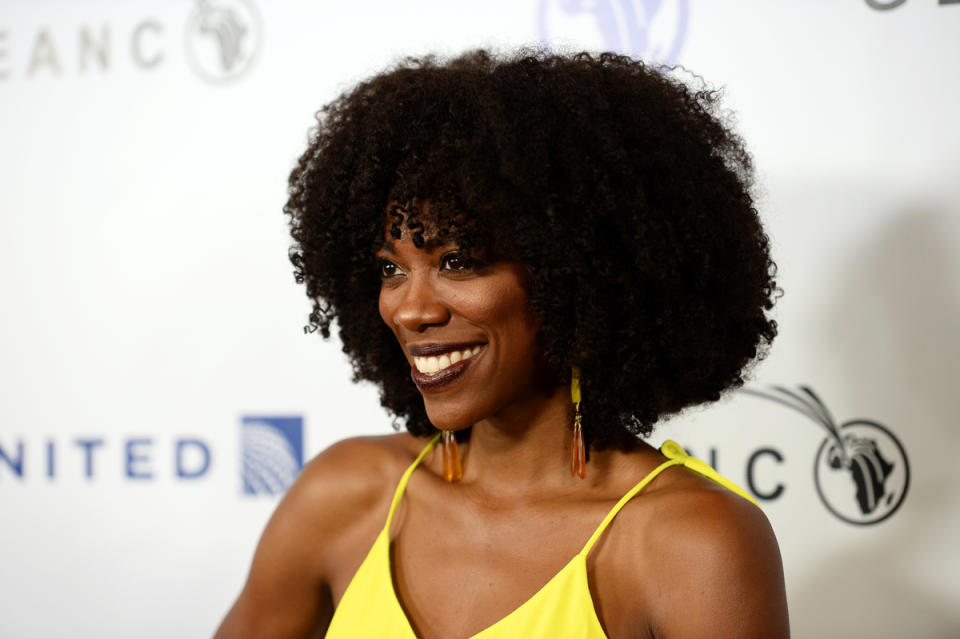People are shaming Yvonne Orji for being a 33-year-old virgin

When Insecure star Yvonne Orji shared once again with the press that at the age of 33 she is a virgin and plans on remaining so until marriage, social media quickly erupted with opinions on Orji’s decision and its implications.

Some reacted negatively, seemingly shaming the star over her personal choices:
Others expressed their admiration for Orji doing what’s right and best for her according to her own beliefs — also clarifying that Orji’s choices aren’t a version of slut shaming:
While her choice to remain a virgin does not put Orji in the majority of women her age, she’s certainly not the only 33-year-old virgin out there. According to the Guttmacher Institute, 36 percent of women ages 20 to 44 are single, and nine in 10 single women are sexually experienced.
And as Bedsider, an online birth control support network for women ages 18 to 29 operated by the National Campaign to Prevent Teen and Unplanned Pregnancy, reminds us, abstinence isn’t about not ever having sex ever but, eventually having sex, just “not right now.” The group defines “not right now” as “no vaginal sex” and makes clear that abstinence is the only method of birth control that’s 100 percent guaranteed to prevent pregnancy.
Bedsider also points out good communication skills — especially with a partner — are essential to practicing “not right now.” And that “not right now” doesn’t mean that a person still can’t “have fun” exploring things sexually with a partner.
Furthermore, explains Bill Albert, chief program officer for the National Campaign to Prevent Teen and Unplanned Pregnancy, when we talk about abstinence, it’s important to be clear about exactly what we are talking about.
“There is sort of a divide in this country between abstinence as a behavior and abstinence as a program, which are two separate things,” he tells Yahoo Beauty.
Albert also notes that when talking to young people about abstinence as a concept, it’s important to clarify exactly what behaviors are being abstained from and until when.
Most important, he says, all conversations about sex — including discussions of abstinence — need to be developmentally appropriate and focus on allowing people to live full, happy lives. Which includes feeling good about the choices they make about their sex life, regardless of whether they are choosing to have or not have sex for any number of reasons.
Dr. Leslie Kantor, vice president of education for Planned Parenthood Federation of America, agrees, telling Yahoo Beauty, “Planned Parenthood believes that every adult deserves the sex life of their complete choosing, including the decision to engage in sexual activity at all. We can all agree that learning about abstinence and delaying sex is an important part of any pregnancy prevention or sex education program; however, it is not the only part. Young people need education that helps them make healthy decisions about their relationships and their futures.”
“A happy, healthy sexual life is always left up to the individual as to when, where, and under what terms that begins in their lives,” Albert emphasizes, adding, “So it’s important to talk about using contraception consistently and comprehensively” so people can continue to make the best decisions for themselves and their plans for growing their own families with all the information they need for whenever they do choose to become sexually active.
And when it comes to talking about sex — and whether or not a person is having it — Albert says “the key word is respect. In a respectful way, you can always say that different people make different choices.”
Albert says that parents talking to their kids about sex should make sure to always focus on “all the options” available to people regarding making the best choices for themselves according to their own lives, morals, and religious affiliations.
And while 60 percent of teens in the U.S. have had sex before graduating from high school, he notes that “many young people decide not to have sex until they graduate from high school. And a smaller group, for their own reasons, choose to delay having sex until marriage, and that’s fine too. It’s all about helping young people feel empowered as to when and under what circumstances to have sex and helping young people understand that we can and should lay out all the options that different people make. It’s all OK as long as a person does what’s right for them.”
Read more from Yahoo Style + Beauty:
Follow us on Instagram, Facebook, and Pinterest for nonstop inspiration delivered fresh to your feed, every day. For Twitter updates, follow @YahooStyle and @YahooBeauty.